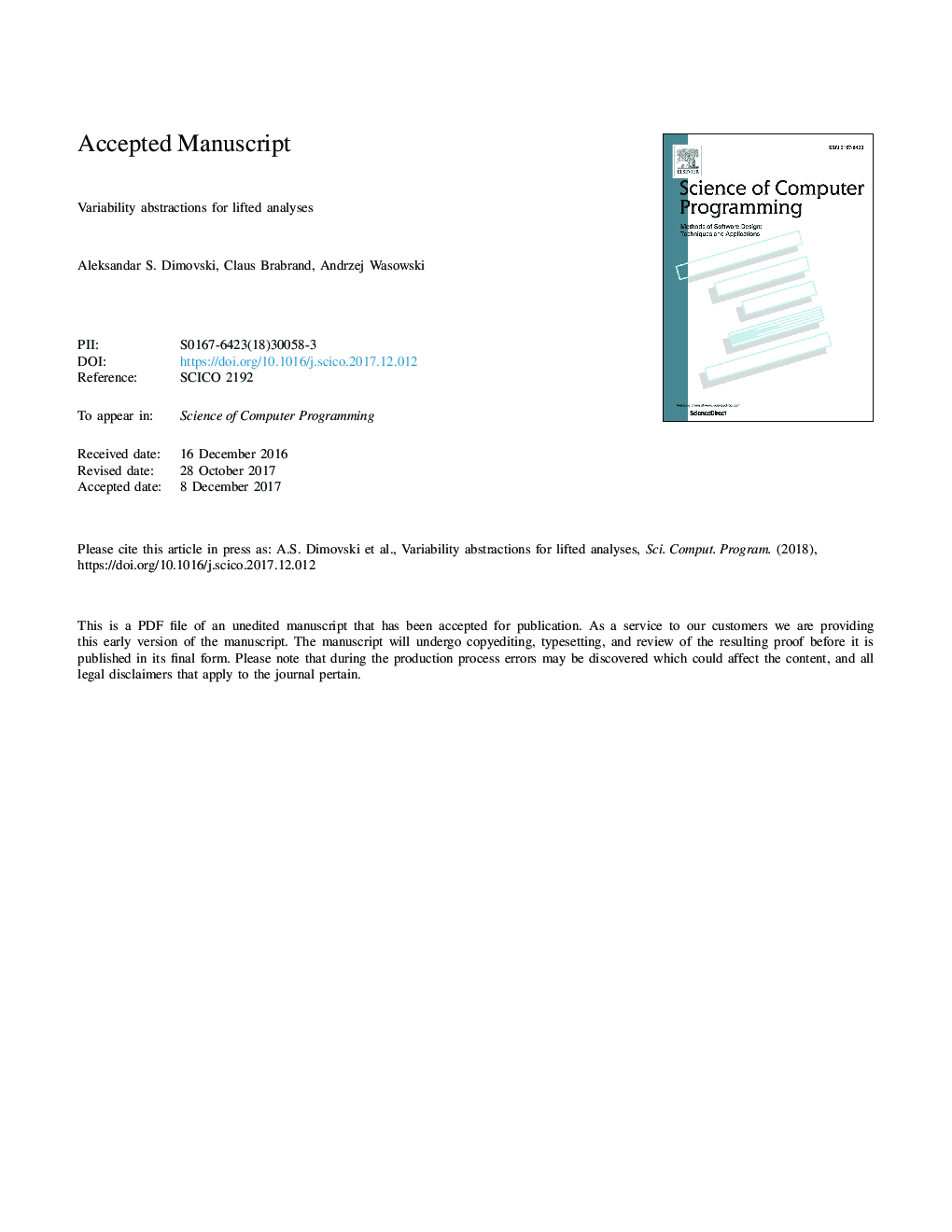| Article ID | Journal | Published Year | Pages | File Type |
|---|---|---|---|---|
| 6875216 | Science of Computer Programming | 2018 | 48 Pages |
Abstract
Our approach for abstracting lifted analysis is orthogonal to the particular program analysis chosen as a client. While a single program analysis operates on program states and depends on language-specific constructs, the lifted analysis assumes that a single program analysis already exists and lifts its results to all variants of the analyzed program family. Variability abstractions aim to reduce this variability-specific component of the lifted analysis, which handles variability and #ifdef-s. Furthermore, given the “orthogonality” of variability abstractions to the rest of the analysis (its language-specific component), we can implement abstractions as a preprocessor. In particular, given an abstraction we define a syntactic transformation, which translates any program family into an abstracted version of it, such that the analysis of the abstracted program family coincides with the corresponding abstracted analysis of the original program family. We have implemented the proposed approach, and we evaluate its practicality on three Java benchmarks. The evaluation shows that abstractions yield significant performance gains, especially for families with higher variability.
Related Topics
Physical Sciences and Engineering
Computer Science
Computational Theory and Mathematics
Authors
Aleksandar S. Dimovski, Claus Brabrand, Andrzej Wasowski,
